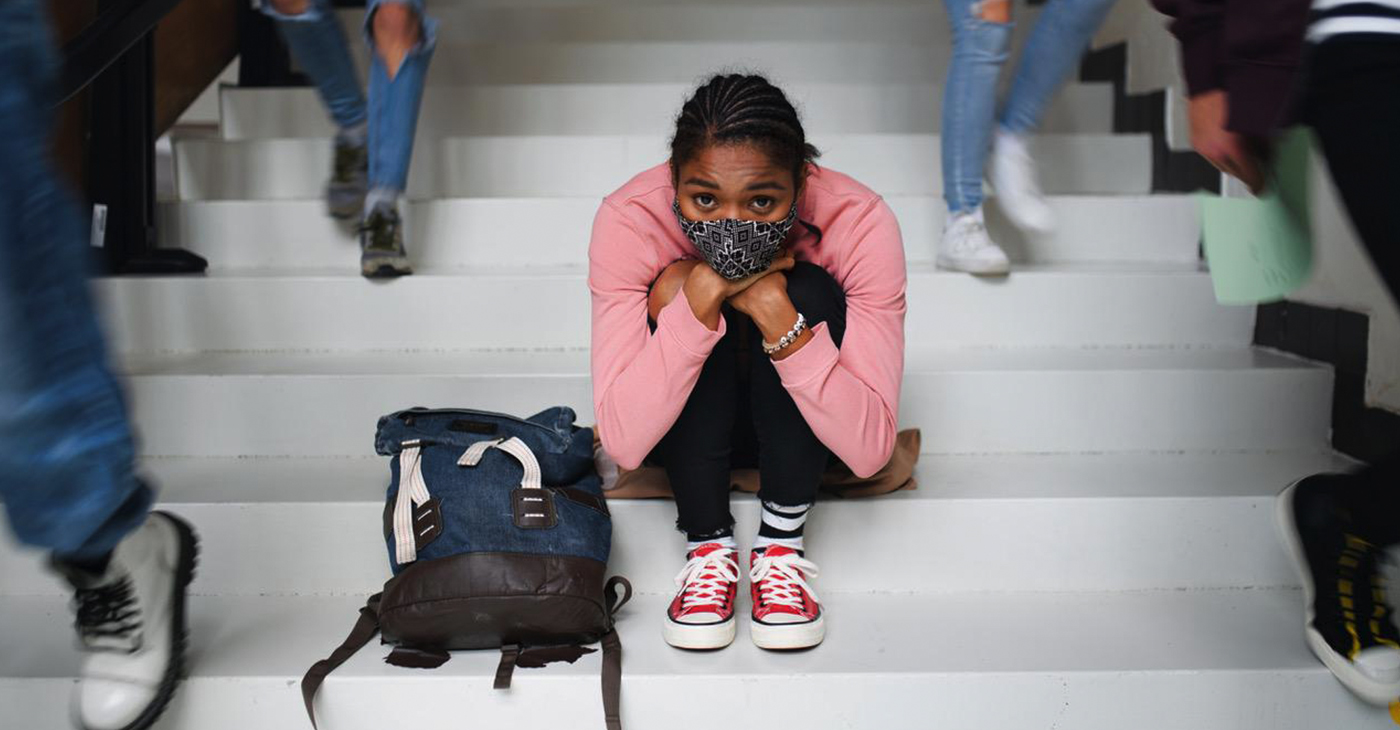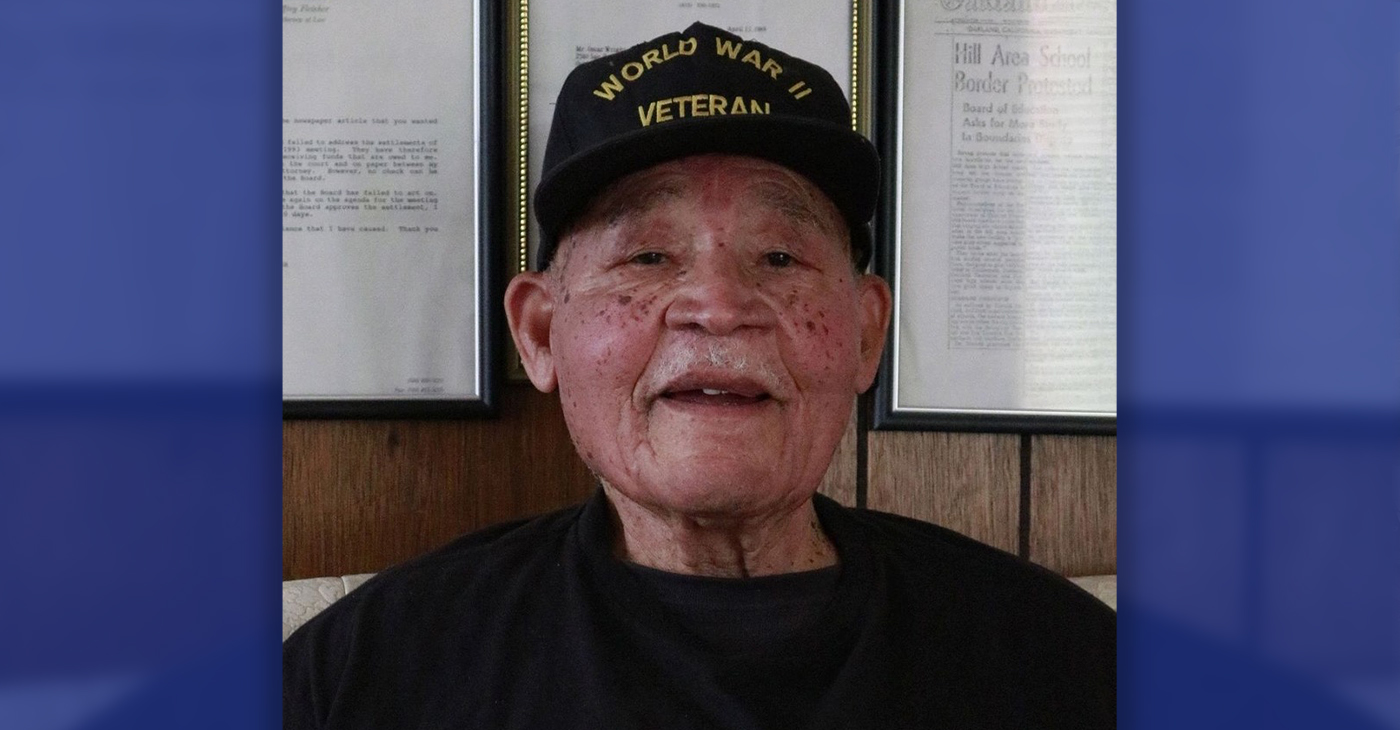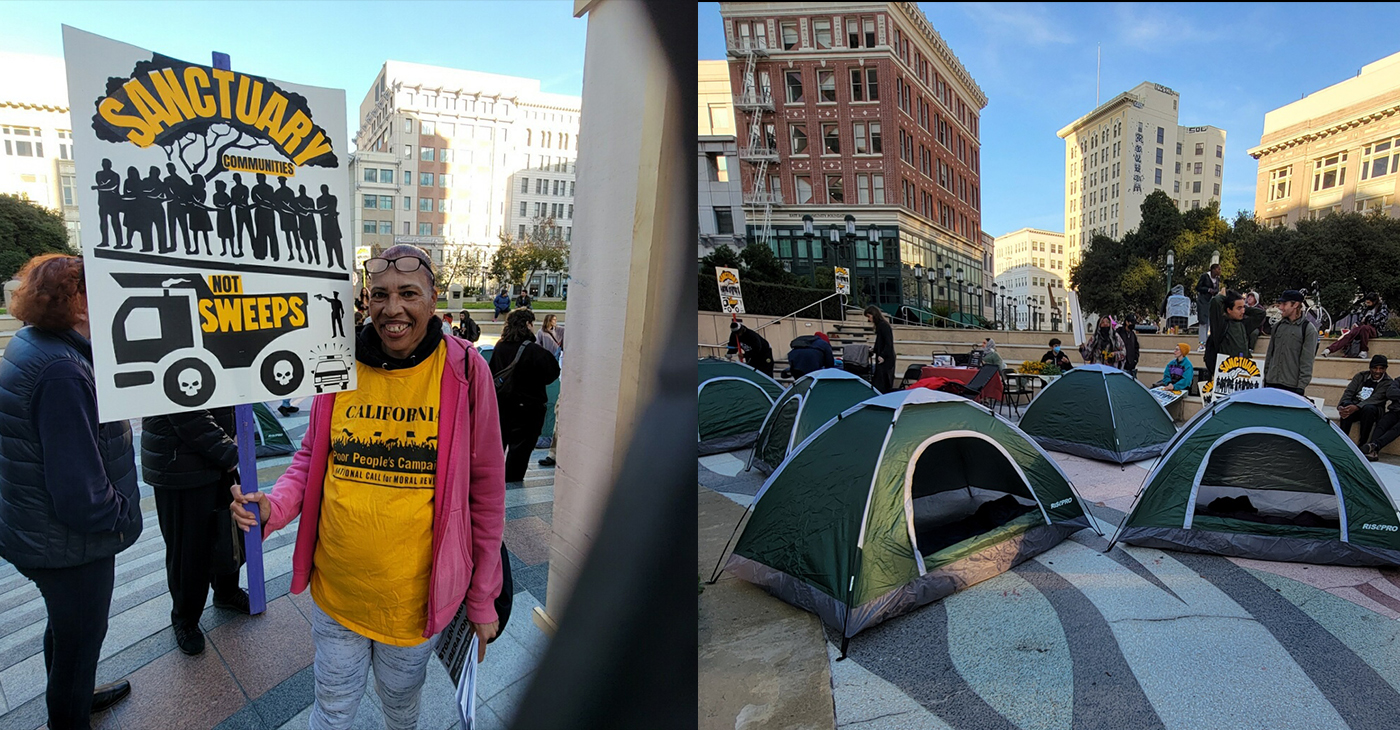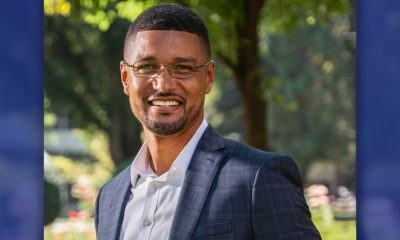Activism
Youth Mental Health Care: California’s Investments May Still Not Be Enough
In August, Gov. Gavin Newsom signed Assembly Bill (AB) 2508, authored by Assemblymember Sharon Quirk-Silva (D-Fullerton). The new state law, Newsom’s office says, reimagines youth mental health services by strengthening care systems in schools and focusing on intervention and prevention instead of crisis care.

By Aldon Thomas Stiles, California Black Media
In August, The Children’s Partnership hosted a mental health panel centered around the voices of young girls and women of color. The session was organized as part of the organization’s Youth of Color initiative.
“I had never been surrounded by a group of people with the same experiences and the same struggles regarding mental health, regarding being a person of color,” said Samantha Giles.
Giles, a California teenager, is one of the Children’s Partnership’s youth panelists.
“I even got to go into a breakout room where we talked about how our parents don’t necessarily recognize our mental health struggles and I never really talked with someone else my age about my personal experience and their personal experience,” the teenager intimated.
Giles described the interactions she had with her peers as “eye opening.”
That same month, California Gov. Gavin Newsom announced his “Master Plan for Kids’ Mental Health,” an initiative that pumps $4.7 billion into the super-system providing mental health services to the state’s youth.
See the Video: California African American Teens Speak Out
Some advocates and public health officials say the governor’s announcement serves as an appropriate policy response to what experts are calling a mental health crisis in the state. They see it as a positive step the state is taking to address the under-treated and often overlooked challenges that youth like Giles are trying to overcome.
According to the California Health Care Foundation (CHCF), one in 14 children have experienced a mental or emotional disturbance that disrupts their day-to-day life.
Of the California adolescents who experienced major depressive episodes, 63.6% did not receive treatment for those incidents.
Newsom touts California’s response to the national mental health crisis over that of other states.
“As other states take away resources to support kids’ mental health, California is doubling down with the most significant overhaul of our mental health system in state history,” Newsom said. “We’re investing billions of dollars to ensure every California child has better access to comprehensive mental health and substance use services.”
Some notable organizations have praised the state’s commitment to children’s and young adults’ mental health.
“The state has made some incredible and historic investments in children and youth mental health and well-being – both with the $4 billion Children and Youth Behavioral Health Initiative and with the $3 billion Community Schools Initiative,” said Angela M. Vázquez, policy director at the Children’s Partnership.
However, Vázquez raised concerns about many of these funds being one-time investments that might not fully address the needs of children of color.
Vázquez’s concerns, which mirror those of several mental health advocates in communities of color, extend to Newsom’s pledge to add 40,000 more mental health workers to California.
“Still, the reality is that the clinical workforce is and will likely remain for some time largely white and middle-class – not at all reflective of the diversity of our state’s children,” Vázquez stated.
The Children’s Partnership is currently working on a solution to the existing inequity that the organization says involves peer-to-peer interactions.
“Youth of color from The Children’s Partnership’s own youth policy council, the Hope, Healing, and Health Collective shared that greater investments in peer-to-peer programs would improve the opportunities for youth of color to connect and heal with members of their own communities and identities,” Vázquez stated. “Peer support is an essential evidence-based strategy for young people’s mental health that has the potential to build interest and foundational professional skills that lead to future opportunities for mental health career paths for more students of color.”
Contributing to the state’s youth mental health crisis are other factors like the COVID-19 pandemic, experts say.
According to research published by the Journal of Racial and Ethnic Health Disparities, the state of mental health among Black people worsened during the COVID-19 pandemic with anxiety and depression being the main issues.
“These recent events have layered on additional psychological and emotional stress on children and youth of color, particularly Black youth,” Vázquez said. “In considering what serves young people well, it is imperative that we address the systemic barriers that have contributed to historic mental health disparities in youth, and develop innovative strategies, leaving space for healing outside of and in tandem with the traditional mental health system.”
The CHCF found that Black people had the hardest time among all other ethnic groups finding a doctor, especially a specialist.
In 2019, Black children in California were the most likely to experience serious emotional disturbances among children of all other racial groups at a rate of nearly 8%.
From 2017 to 2019, roughly 30% of Black 7th graders were projected to have experienced feelings of depression or depressive episodes.
These trends are not just documented among today’s Black children. African American adults are reported to have experienced more adverse childhood experiences that negatively impact their mental health more than any other ethnic group that self-reported, according to the CHCF.
In August, Newsom signed Assembly Bill (AB) 2508, authored by Assemblymember Sharon Quirk-Silva (D-Fullerton). The new state law, Newsom’s office says, reimagines youth mental health services by strengthening care systems in schools and focusing on intervention and prevention instead of crisis care.
The governor says the legislation will “better define the role of school counselors.”
But Vázquez has some reservations about that bill, too. She feels it does not fully address the mental health needs of all of the state’s children.
“One thing that AB 2508 does not address is the urgent need for greater investments in California’s youngest learners’ mental health – children ages 0-5,” Vázquez stated. “The state needs to invest significantly more resources in community-based infant and early childhood mental health services, such as early childhood mental health consultations – an evidence-based model that reduces the number of preschool suspensions and expulsions, an issue that has significant disproportionate impacts on young Black children.”
California Black Media’s coverage of Mental Health in California is supported by the California Health Care Foundation.
Activism
Oakland Post: Week of December 25 – 31, 2024
The printed Weekly Edition of the Oakland Post: Week of December 25 – 31, 2024

To enlarge your view of this issue, use the slider, magnifying glass icon or full page icon in the lower right corner of the browser window. ![]()
Activism
Living His Legacy: The Late Oscar Wright’s “Village” Vows to Inherit Activist’s Commitment to Education
Kingmakers of Oakland (KOO), a nonprofit organization that works to improve educational and life outcomes for Black boys and men, stated that “Oscar Wright is one of the most prolific, consistent, and committed advocates of equity for Black students and Black Families here in Oakland for the past six decades.”

By Antonio Ray Harvey, California Black Media
Activists mourning Oscar Carl Wright’s death, have pledged to continue his lifelong mission of advocating for Black students and families in Northern California.
Wright, 101, who passed away on Nov. 18, was involved in Oakland’s educational affairs until his death.
Now, friends and admirers acknowledge that carrying on his legacy means doubling down on the unfinished work that Wright dedicated his life, time, and resources to, according to Y’Anad Burrell, a family friend and founder of San Francisco-based Glass House Communications (GHC).
“Mr. Wright did a lot of work around equity, specifically, for Black students based on their needs — whether it was tutoring, passing classes, or graduating,” Burrell said.
Wright became a champion for his children’s education, recognizing the disparities between their school experiences and his own upbringing in the Mississippi Delta.
Burrell told California Black Media (CBM) that the crisis of unequal access to resources and a quality education continues to affect the Oakland Unified School District (OUSD).
According to Oakland Reach, in the city of Oakland, only 3 in 10 Black and Brown students are reading at or above grade level. In addition, only 1 in 10 are doing math at or above grade level.
Oakland REACH is a parent-run, parent-led organization. It aims to empowers families from the most underserved communities to demand high-quality schools for their children.
Wright’s work as an activist had impact across the state but he was primarily known in the Bay Area. Alongside the Black United Front for Educational Reform (BUFER), he filed a complaint against OUSD for violating the Civil Rights Act of 1964.
In 2000, the OUSD school board proposed an action plan to address educational inequity, but it was never implemented.
Wright later founded the African American Honor Roll Celebration at Acts Full Gospel Church, an award that recognizes Black students with a grade point average of 3.0 or better. Each year, more than 1,000 students are honored at this ceremony.
Kingmakers of Oakland (KOO), a nonprofit organization that works to improve educational and life outcomes for Black boys and men, stated that “Oscar Wright is one of the most prolific, consistent, and committed advocates of equity for Black students and Black Families here in Oakland for the past six decades.”
Burrell said that one of the main reasons Wright’s work was so essential for families and children in Oakland that is the direct relationship between acquiring a quality education and affording quality housing, maintaining food security, achieving mental wellness, and securing stable employment.
Wright was the child of sharecroppers from Coahoma County, Mississippi. He attended Alcorn State University, a Historically Black College and University (HBCU).
In the late 1950s, Wright and his family relocated to the Bay Area where he worked as a contractor and civil engineer. He later became an active member of the National Association for the Advancement of Colored People (NAACP).
Burrell said the people who will carry on Wright’s work are part of a “village” that includes KOO’s CEO Chris Chatmon. Wright was a mentor to Chatmon.
“It will not be one entity, one person, or one organization that picks up the baton because it was a village effort that worked alongside Mr. Wright for all these years,” Burrell said.
Burell says that legacy will live on.
Activism
Protesters Gather in Oakland, Other City Halls, to Halt Encampment Sweeps
The coordinated protests on Tuesday in San Francisco, Oakland, Vallejo, Fresno, Los Angeles and Seattle, were hosted by Poor Magazine and Wood Street Commons, calling on cities to halt the sweeps and focus instead on building more housing.

By Post Staff
Houseless rights advocates gathered in Oakland, San Francisco, Los Angeles, and other city halls across California and Washington state this week protesting increased sweeps that followed a U.S. Supreme Court decision over the summer.
The coordinated protests on Tuesday in San Francisco, Oakland, Vallejo, Fresno, Los Angeles and Seattle, were hosted by Poor Magazine and Wood Street Commons, calling on cities to halt the sweeps and focus instead on building more housing.
“What we’re dealing with right now is a way to criminalize people who are dealing with poverty, who are not able to afford rent,” said rights advocate Junebug Kealoh, outside San Francisco City Hall.
“When someone is constantly swept, they are just shuffled and things get taken — it’s hard to stay on top of anything,” said Kealoh.
Local houseless advocates include Victoria King, who is a member of the coordinating committee of the California Poor People’s Campaign. She and Dr. Monica Cross co-chair the Laney Poor People’s Campaign.
The demonstrations came after a June Supreme Court ruling expanded local governments’ authority to fine and jail people for sleeping outside, even if no shelter is available. Gov. Gavin Newsom in California followed up with an order directing state agencies to crack down on encampments and urging local governments to do the same.
Fresno, Berkeley and a host of other cities implemented new rules, making it easier for local governments to clear sidewalk camps. In other cities, such as San Francisco, officials more aggressively enforced anti-camping laws already on the books.
-

 Activism4 weeks ago
Activism4 weeks agoOakland Post: Week of November 27 – December 3, 2024
-

 Activism2 weeks ago
Activism2 weeks agoButler, Lee Celebrate Passage of Bill to Honor Congresswoman Shirley Chisholm with Congressional Gold Medal
-

 Activism2 weeks ago
Activism2 weeks agoPost News Group to Host Second Town Hall on Racism, Hate Crimes
-

 Activism2 weeks ago
Activism2 weeks agoDelta Sigma Theta Alumnae Chapters Host World AIDS Day Event
-

 Business2 weeks ago
Business2 weeks agoLandlords Are Using AI to Raise Rents — And California Cities Are Leading the Pushback
-

 Activism3 weeks ago
Activism3 weeks agoOakland Post: Week of December 4 – 10, 2024
-

 Activism2 weeks ago
Activism2 weeks agoOakland Post: Week of December 11 – 17, 2024
-

 Arts and Culture1 week ago
Arts and Culture1 week agoPromise Marks Performs Songs of Etta James in One-Woman Show, “A Sunday Kind of Love” at the Black Repertory Theater in Berkeley























































